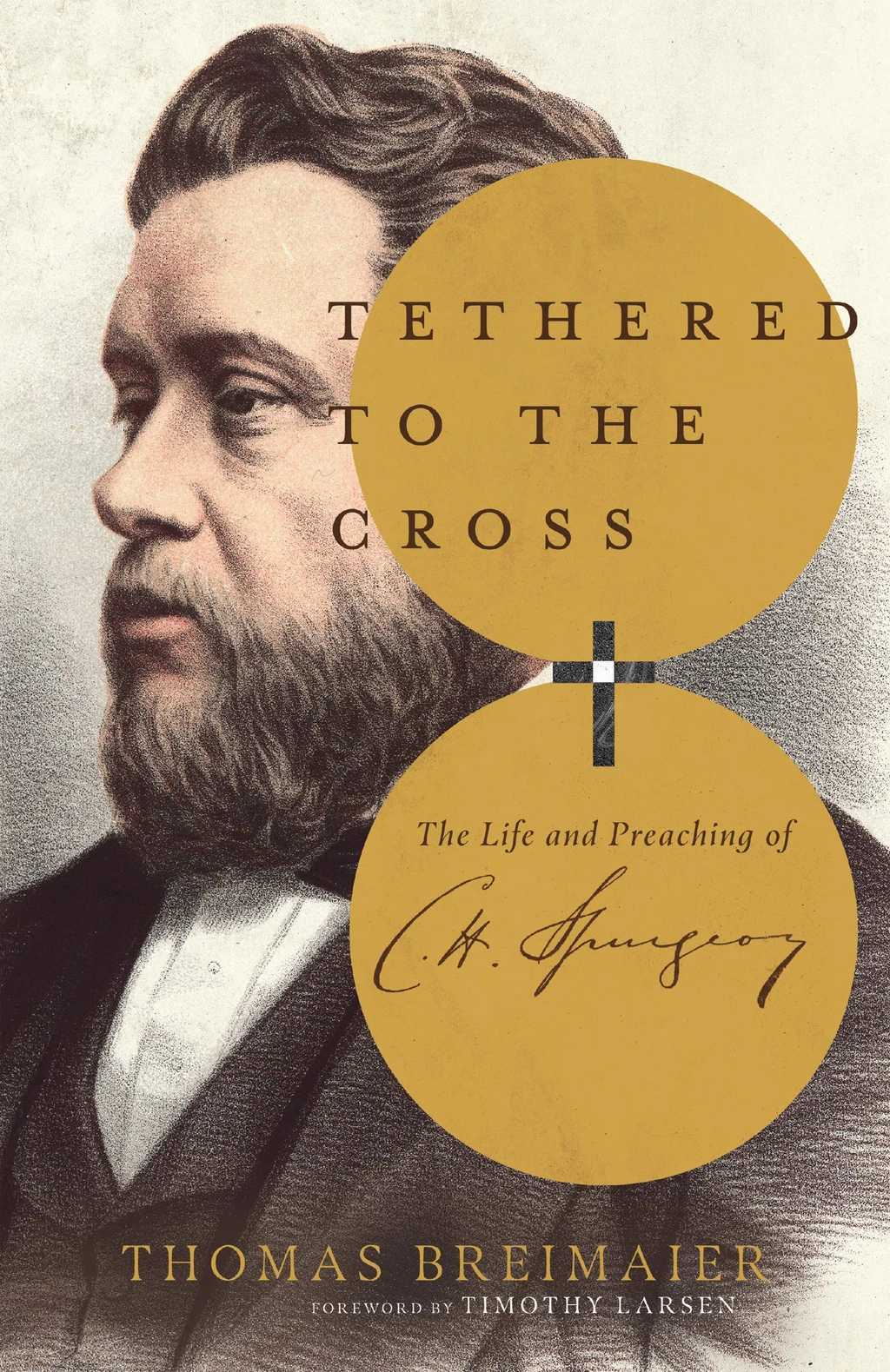
Thomas Breimaier
Reviewed by: Daniel Kunkle
Tethered to the Cross: The Life and Preaching of Charles H. Spurgeon, by Thomas Breimaier. IVP, 2020. Hardcover, 288 pages, $24.64 (Amazon). Reviewed by OP member Daniel Kunkle.
There is a great deal in Tethered to the Cross that the Spurgeon admirer will appreciate. The author’s stated goal is “to provide the first sustained investigation of Spurgeon’s hermeneutics and in so doing demonstrate that the cross and conversion were central to any understanding of his approach to biblical texts” (19–20). The author achieves his goal.
The book begins with a chapter that summarizes Spurgeon’s childhood, early education, and conversion, which played an important role in what would become his hermeneutical method. Chapter 2 looks at Spurgeon’s early years in ministry and his developing hermeneutical method. Chapters 3 and 4 take a detailed look at Spurgeon’s interpretation of Old and New Testament texts, respectively. Chapter 5 considers Spurgeon’s later years of ministry, particularly outside the pulpit. Chapter 6 investigates Spurgeon’s interest in education, especially at the Pastors’ College, which would later become Spurgeon’s College.
It was Spurgeon’s practice to preach from a single verse of Scripture. In doing so, he often ignored the immediate context of the verse to drive home “an interpretation that was directly crucicentric [centered on the cross] often coupled with a strong appeal toward conversion” (37). Spurgeon believed that all sermons should include a direct reference to Christ, his sacrifice on the cross, and a free offer of the gospel, whether these things were embedded in the text upon which Spurgeon was preaching or not. Breimaier calls this “creative interpretation” (168).
Tethered to the Cross also demonstrates how Spurgeon’s crucicentrism and evangelistic intent drove his devotional writings, his book reviews, the boundaries of Christian fellowship, and his theology of church growth. When writing devotional material, Spurgeon’s primary goal was to direct the lay reader of the Bible to the cross and to a decision for Christ. As a book reviewer, Breimaier states that, “For Spurgeon, the final litmus test for a book remained whether it could be used to support conversionistic and crucicentric aims” (141). Finally, Spurgeon enjoyed a wide range of Christian fellowship across denominational boundaries, with the unifying bond being the centrality of Christ’s substitutionary atonement and the free offer of the gospel. Spurgeon believed that the key to church growth, both in breadth and depth, was cross-centered evangelistic preaching and “its absence would ultimately leave church buildings empty” (240).
The book adds considerable insight into aspects of Spurgeon’s ministry, not so much to his life, however. Spurgeon was mostly self-educated. This quote stands out: “The man who never reads will never be read, he who never quotes will never be quoted. He who will not use the thoughts of other men’s brains, proves that he has no brain of his own. Brethren, what’s true of ministers is true of all our people. You need to read” (43). I also found it helpful to come to a better understanding of the roots of his Reformed/Puritan theology, his fondness for Charles Hodge, and his interaction with theological issues of the day—especially theological liberalism. The nature of the book, a reworking of a doctoral thesis, makes it meticulous although sometimes tedious reading. Still, for the person who knows and loves Spurgeon, Tethered to the Cross provides welcome insights into the character of his ministry and his approach to interpreting the Bible.
August 24, 2025
August 17, 2025
Reformed Covenant Theology: A Systematic Introduction
August 10, 2025
August 03, 2025
July 27, 2025
July 20, 2025
July 13, 2025
© 2025 The Orthodox Presbyterian Church